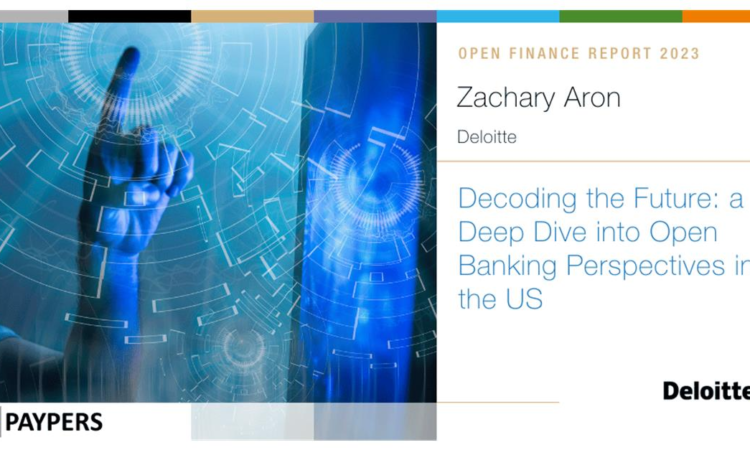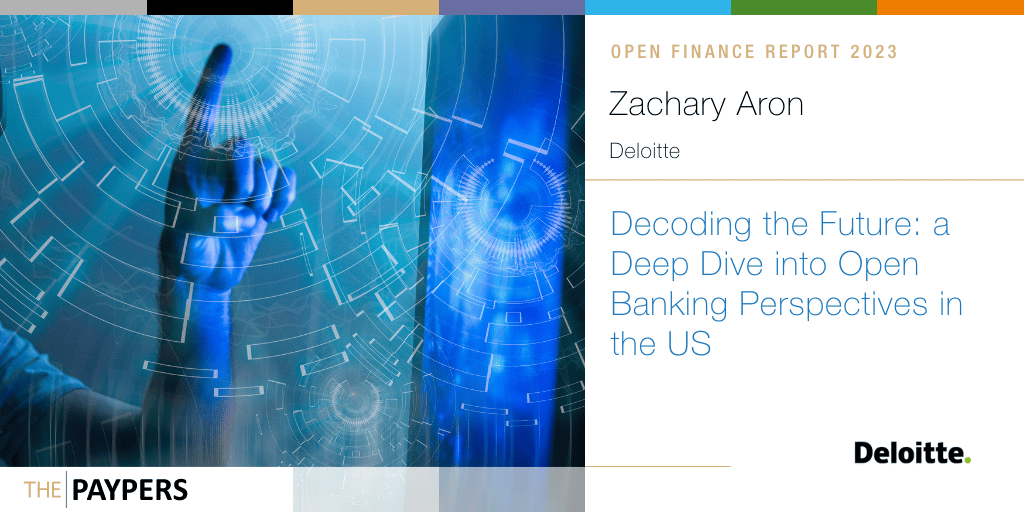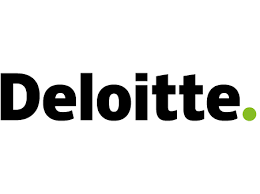

What is the current scale and speed of Open Banking adoption in the US? Do you anticipate the US adopting Open Banking regulations? If so, what type of Open Banking model is likely to be adopted?
We believe the US will take more of a market-based model, which will emphasise collaboration between traditional financial services entities, fintechs, and retailers to provide an improved context-based experience. The initial developments are taking place in payments, where the move to embed payments and transactional credit like Buy Now, Pay Later in the process of making a purchase are helping drive an improved customer experience.
Who do you believe are the leading supporters of Open Banking and consumer data sharing in the US? Conversely, are there any entities actively hindering progress or aiming to maintain the status quo?
In Deloitte’s view, the entire payments ecosystem sees value in enabling consumers and businesses to have increased access and convenience to their money and ensuring that they can execute financial transactions in a personalised context. What each player in the payments’ ecosystem is looking at is how to do this in a responsible manner that ensures data and identity are protected and that services are provided in a meaningful way to the end customer.
How receptive are US consumers to Open Banking, and what concerns do they have about it?
Deloitte’s research shows that initial receptivity for customers to share their banking and financial data is mixed. Consumers are asking less for ‘Open Banking’ and more for the ability to use their money in easy ways that enable the things they need to do in their everyday lives. Our research shows that consumers place a high value of trust in those who protect their money and their financial data.
In what ways can Open Banking have a positive influence on consumers and businesses in the US? What are the most promising areas, use cases, and propositions for Open Banking?
We believe the initial value is in payments. The ability to execute previously challenging transactions, such as splitting a restaurant check, paying an individual via text message, or being provided with appropriate credit offers at the point of check-out to enable the ability to complete a purchase, demonstrates the promise of Open Banking. We see significant potential to provide more support in areas ranging from mortgage applications to supply chain transactions, and Open Banking can create more frictionless omnichannel retail experiences.
What strategies are US banks employing to embrace Open Banking? Could you provide examples of these strategies and initiatives?
We have started to see US banks provide increased propositions to support their customers and their needs. One example is how banks have updated their platforms to enable easier access via APIs. Those enterprise customers then use that to create improved propositions to their customers, such as insurance companies providing portals that enable improved claims payouts, or companies being able to develop white-labelled, personalised credit propositions.
What recommendations do you have for banks looking to adopt Open Banking practices?
US banks should continue to look at partnerships as a way to help provide enhanced digital experiences to their customers. These digital experiences can be offered directly to individual consumers or by implementing tools that enable banks’ business customers to provide personalised experiences to their end consumers. US banks should invest in simplifying their data and modernising their platforms, so it is easier for those experiences to be created.
What are your top 3 predictions of how the US fintech ecosystem will develop over the next three years? Please answer this in the context of Open Banking.
-
Fintechs will enter into more combinations with established financial institutions to provide Open Banking services.
-
Experience and data-focused fintechs will be more successful than ‘product-focused’ ones.
-
B2B2C fintechs will be more successful than B2C fintechs.
This editorial piece was first published in the Open Finance Report 2023. We encourage you to download the report and find out the latest trends and developments in the world of Open Banking and Open Finance, as the road to Open Data continues.
About Zachary Aron
 Zachary Aron is Deloitte’s Global and US Payments Leader. He has over 29 years of experience providing business strategy, operations, and technology solutions to payments clients. His focus areas include payments, credit and debit cards, payment networks, and treasury management.
Zachary Aron is Deloitte’s Global and US Payments Leader. He has over 29 years of experience providing business strategy, operations, and technology solutions to payments clients. His focus areas include payments, credit and debit cards, payment networks, and treasury management.
About Deloitte
 Deloitte provides industry-leading audit, consulting, tax, and advisory services to many of the world’s most admired brands, including nearly 90% of the Fortune 500® and more than 8,500 US-based private companies. Learn how Deloitte’s approximately 457,000 people worldwide connect for impact at www.deloitte.com.
Deloitte provides industry-leading audit, consulting, tax, and advisory services to many of the world’s most admired brands, including nearly 90% of the Fortune 500® and more than 8,500 US-based private companies. Learn how Deloitte’s approximately 457,000 people worldwide connect for impact at www.deloitte.com.





